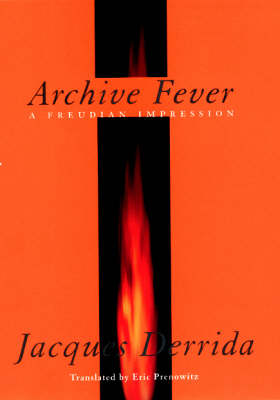Religion and Postmodernism
2 total works
"The Gift of Death", Jacques Derrida's most sustained consideration of religion, explores questions first introduced in his book "Given Time" about the limits of the rational and responsible that one reaches in granting or accepting death, whether by sacrifice, murder, execution, or suicide. Derrida analyzes Czech philosopher Jan Patocka's "Heretical Essays in the Philosophy of History" and develops and compares his ideas to the works of Heidegger, Levinas, and Kierkegaard. One of Derrida's major works, "The Gift of Death" resonates with much of his earlier writing, and this highly anticipated second edition is greatly enhanced by David Wills' updated translation.This new edition also features the first-ever English translation of Derrida's "Literature in Secret". In it, Derrida continues his discussion of the sacrifice of Isaac, which leads to bracing meditations on secrecy, forgiveness, literature, and democracy. He also offers a reading of Kafka's "Letter to His Father" and uses the story of the flood in "Genesis" as an embarkation point for a consideration of divine sovereignty.
In this work, Jacques Derrida guides the reader through an extended meditation on remembrance, religion, time, and technology - all occasioned by a deconstructive analysis of the notion of archiving. The archival concept has played a pivotal role in numerous critical debates - a place of origin, yet of perpetuity, a place of stasis and order, yet of discovery, the notion of archive houses a fascinating complex of diverse, and often disparate, meanings. As a depository of civic record and social history whose very name derives from the Greek word for town hall, the archive would seem to be a public entity, yet it is stocked with the personal, even intimate, artifacts of private lives. This inherent tension between public and private inaugurates, argues Derrida, an inquiry into the human impulse to preserve, through technology as well as tradition, both a historical and a psychic past.

